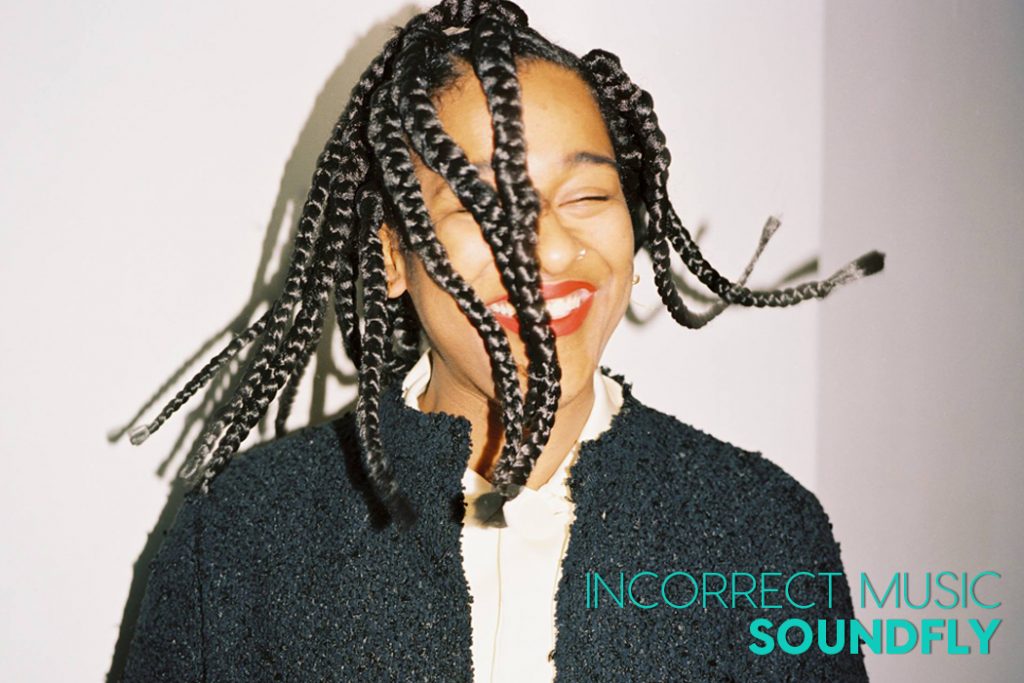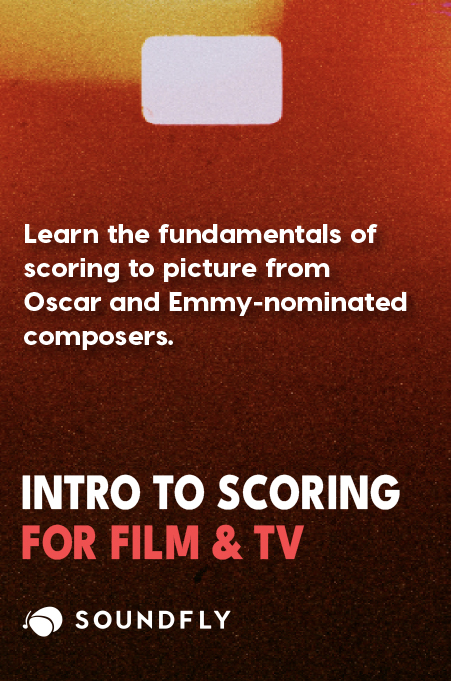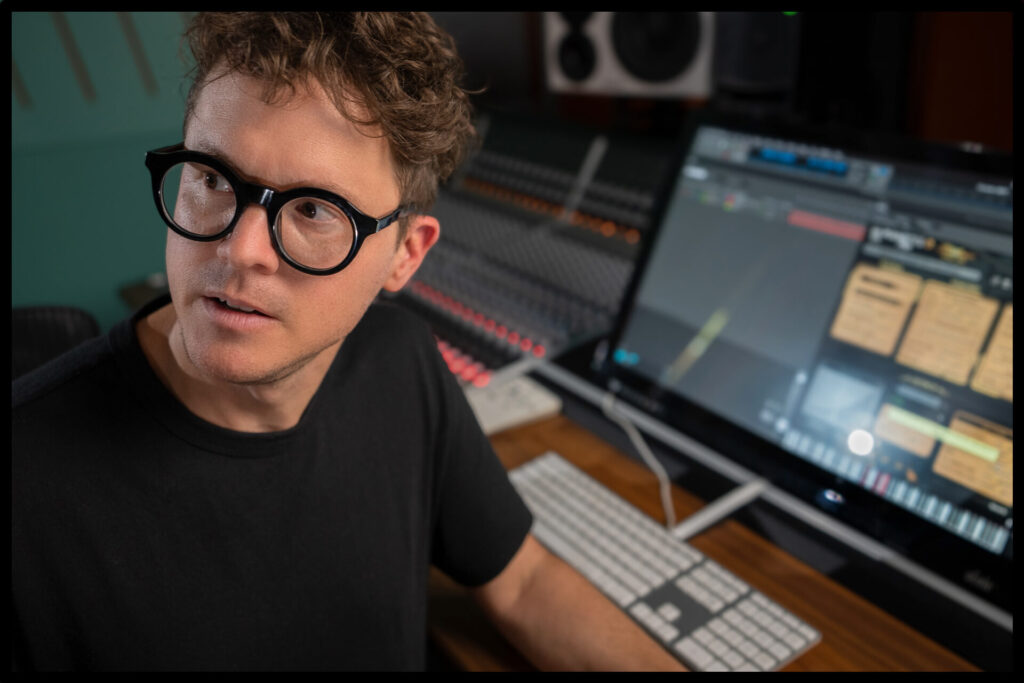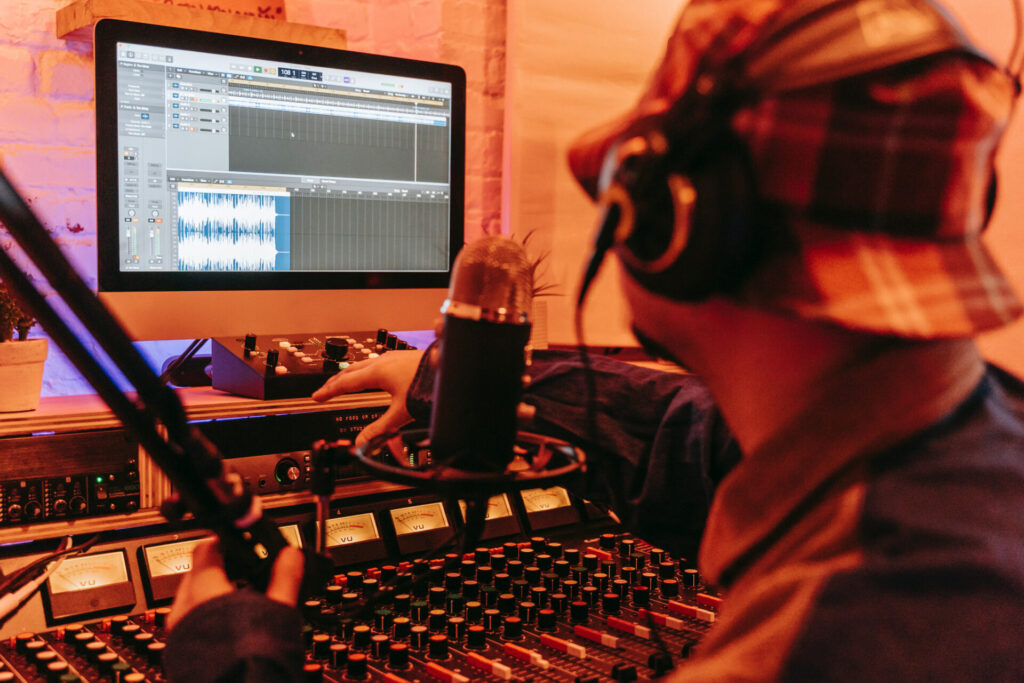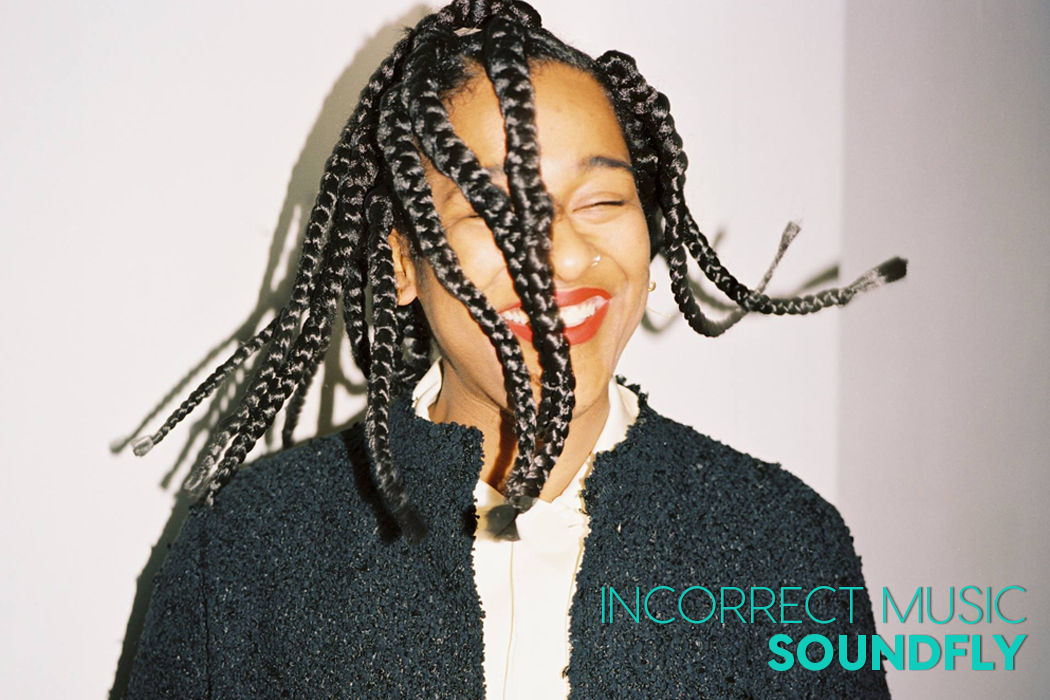
Welcome back to our interview series, Incorrect Music, curated by guitarist, singer, and composer Lora-Faye Åshuvud (of the band Arthur Moon). In this series, we present intimate conversations with artists who are striving to push the boundaries of their process and craft. Join our weekly email newsletter to get more insights like this into how professional artists are making music, and how you can apply those lessons to your own music.
Brooklyn’s L’Rain (a.k.a., Taja Cheek) is a composer, multi-instrumentalist, and vocalist whose self-titled full-length is an exploration of liminal space: those magic, shimmering thresholds between trained musicianship and intuitive gesture, between tape loop and neurological loop, between religious and secular, and even between grief and celebration.
Cheek’s mother died during the production of the record, and the loss casts the work with this urgent energy that sharpens and dulls depending on which of the in-between spaces she’s occupying at any given moment. Field recordings reprise into thick psych-soul vocal stacks, skittering jazz-inflected percussion phrases settle into heavy half-time grooves, synths wash out under Cheek’s perfect, arpeggiated Johnny Greenwood-esque electric guitar iterations.
“I used to spend hours practicing cello and piano as a kid,” says Cheek, “turning my mistakes into songs. I think that planted the seed for L’Rain — an economy of ideas, organic processes, starting from a place of modesty, banality, and turmoil.” Here at Soundfly, we lovingly call that “Incorrect Music.”
L’Rain’s recent self-titled album is out now via Astro Nautico.
– Lora-Faye Åshuvud
Interview by Catherine Harris-White
How did you get into music, and what was the path you followed to get to where you are?
I used to spend hours practicing cello and piano as a kid, turning my mistakes into songs. I think that planted the seed for L’Rain — an economy of ideas, organic processes, starting from a place of modesty, banality, and turmoil.
What does music truly “mean” to you?
In high school, I used to describe my relationship to music as a dead marriage. Pretty ‘tween of me, but I’m still not entirely convinced it isn’t true. Not that music isn’t intimate or fun or beautiful or new, even decades later. It is! But it can also be paralyzing and isolating, especially for anyone who is the least bit self-conscious.
I know you work at MoMA PS1. What has it been like to make the transition from curator to artist?
I think all musicians are, functionally, curators. We all have to figure out what rooms we like the best, what musicians we want to play with on bills, how to contextualize our music to our publics, and how to finesse the logistics of getting our gear to shows.
“I used to spend hours practicing cello and piano as a kid, turning my mistakes into songs. I think that planted the seed for L’Rain — an economy of ideas, organic processes, starting from a place of modesty, banality, and turmoil.”
When/how did you start working with Anna Wise?
Anna and I are cosmically aligned in some very mysterious, very persistent ways. Before we’d gotten to know each other, we’d see each other all the time. One night I was playing bass in my friend Opal’s band Zenizen and Anna was in the audience. I had apparently been staring in Anna’s general direction the whole time, despite not being able to see her at all in the darkness of the club.
After I got off stage, Anna told me, “I want you to be in my band. In about a year, I’ll have it all sorted.” And about a year later, I got a text.
How would you describe your sound?
I’m still trying to figure that out. But lately I’ve been telling people that it’s “not jazz,” and that feels cheeky enough to be right.
At Soundfly, we use the term “incorrect music” to describe the things an artist does that might go against people’s assumptions, or even their own instincts, but which yield exciting and unique results. What about your music might you consider to be “incorrect”?
This really resonates with me. The first thing that comes to mind is that I recorded some of the vocals on my record with my iPhone’s headphone mic. I think that’s pretty “wrong.”
“Lately I’ve been telling people that it’s “not jazz,” and that feels cheeky enough to be right.”
What was your process of selecting songs for this album?
About half way into recording, the internal logic of the project and this record started to reveal itself to me. It wasn’t very premeditated — I was guided by what felt right.
There is a beautiful repetitious energy moving throughout your album, was that intentional or coincidental?
I like using repetition as a device. Maybe it’s a small nod to the compositional techniques I admire in minimalism, process music, and hip-hop.
How did you choose the players on your self-titled album and how did they come together on the record?
I played the vast majority of the parts on the record myself, either in the studio or in my bed, where I record all of my demos. But there were some others who contributed:
Alex Goldberg, who plays drums on the record, was my best friend and arch nemesis; I trust him infinitely. Nearly every record I’ve ever played on I’ve made with Andrew Lappin, who is a co-producer and engineer on L’Rain; he plays one or two guitar parts, too. Jeremy Powell plays saxophone, and he came highly recommended from Lappin.
In the studio, I’d give Jeremy references, and like a chameleon he would play in the style of any soloist I’d mention: Brecker playing Chaka Khan, Pharoah Sanders, etc.
What message would you like new listeners to receive?
I hope listeners experience conflicting emotions and allow them to co-exist.
What’s next for you?
Hopefully, new music!
+ Got ten minutes to learn something new? Explore Soundfly’s wide array of free online courses and expand your musical skills over your lunch break! Here’s just a few free courses you can choose from: How to Create a Killer Musician Website, Theory for Bedroom Producers, Touring on a Shoestring, and Live Clicks and Backing Tracks.
